
Community Leaders Forum
According to the United Nations Refugee Agency [UNHCR], nearly 71 million people worldwide are forcibly displaced from either their home or country due to war, conflict or persecution.
71 million people worldwide!
I was staggered when I read those latest figures, which is almost 3 times the population of Australia.
In this blog, I will share the
- worldwide statistics of displaced people,
- different groups of people of concern, and
- Australia’s attitude towards those seeking refuge.
STATISTICS
The latest figures compiled by UNHCR are as follows:
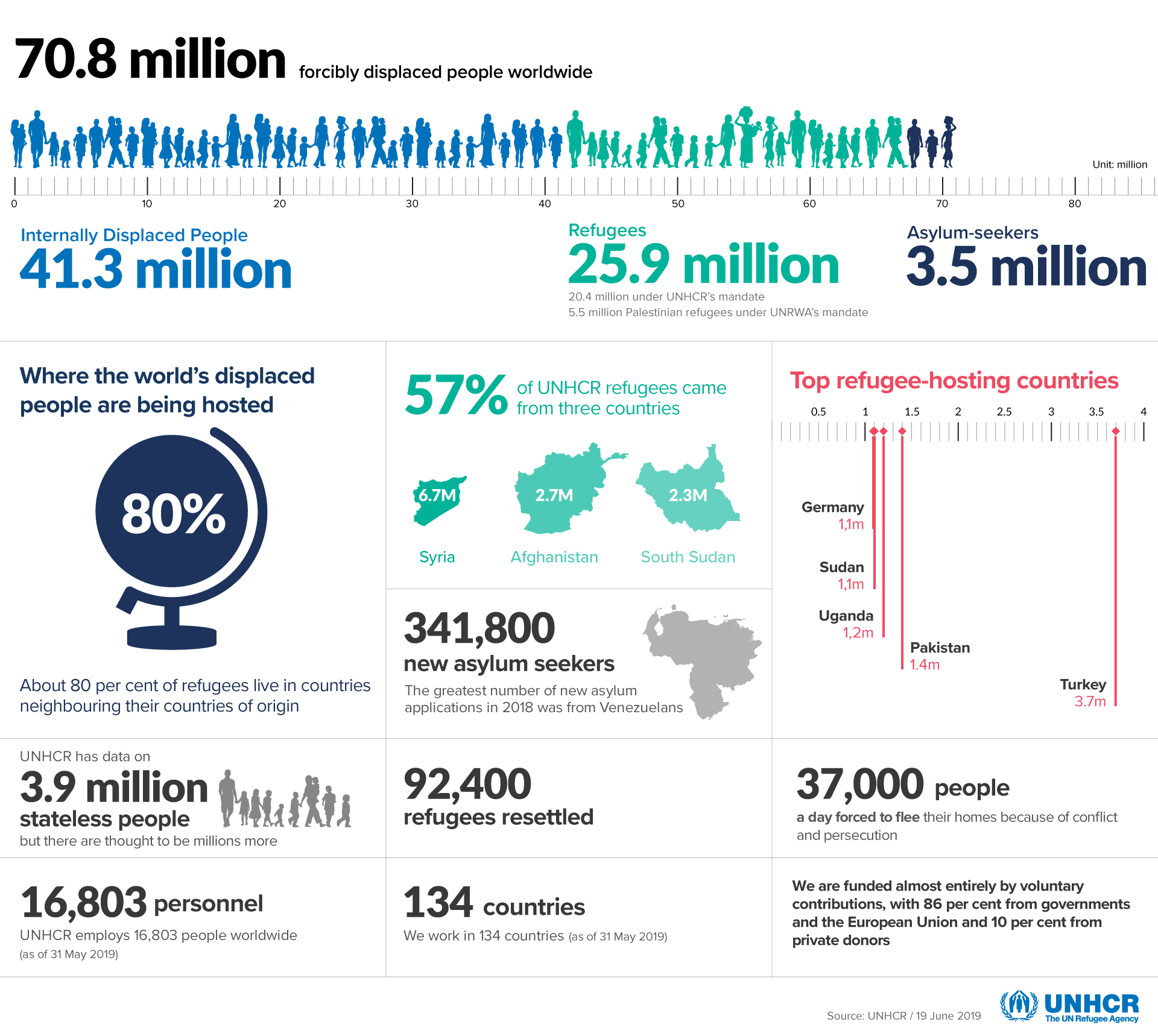
Figures at a glance – source: UNHCR
Every 2 seconds, one person is forcibly displaced from their home or country due to war, conflict or persecution. As a result, we are witnessing the highest levels of displacement on record.
Source: United Nations Refugee Agency [UNHCR].
GROUPS OF PEOPLE OF CONCERN
On Tuesday 18th of June, I was invited to join more than 250 fellow community leaders and representatives at the Community Leaders Forum in Newmarket, Brisbane, to celebrate Refugee Week 2019.
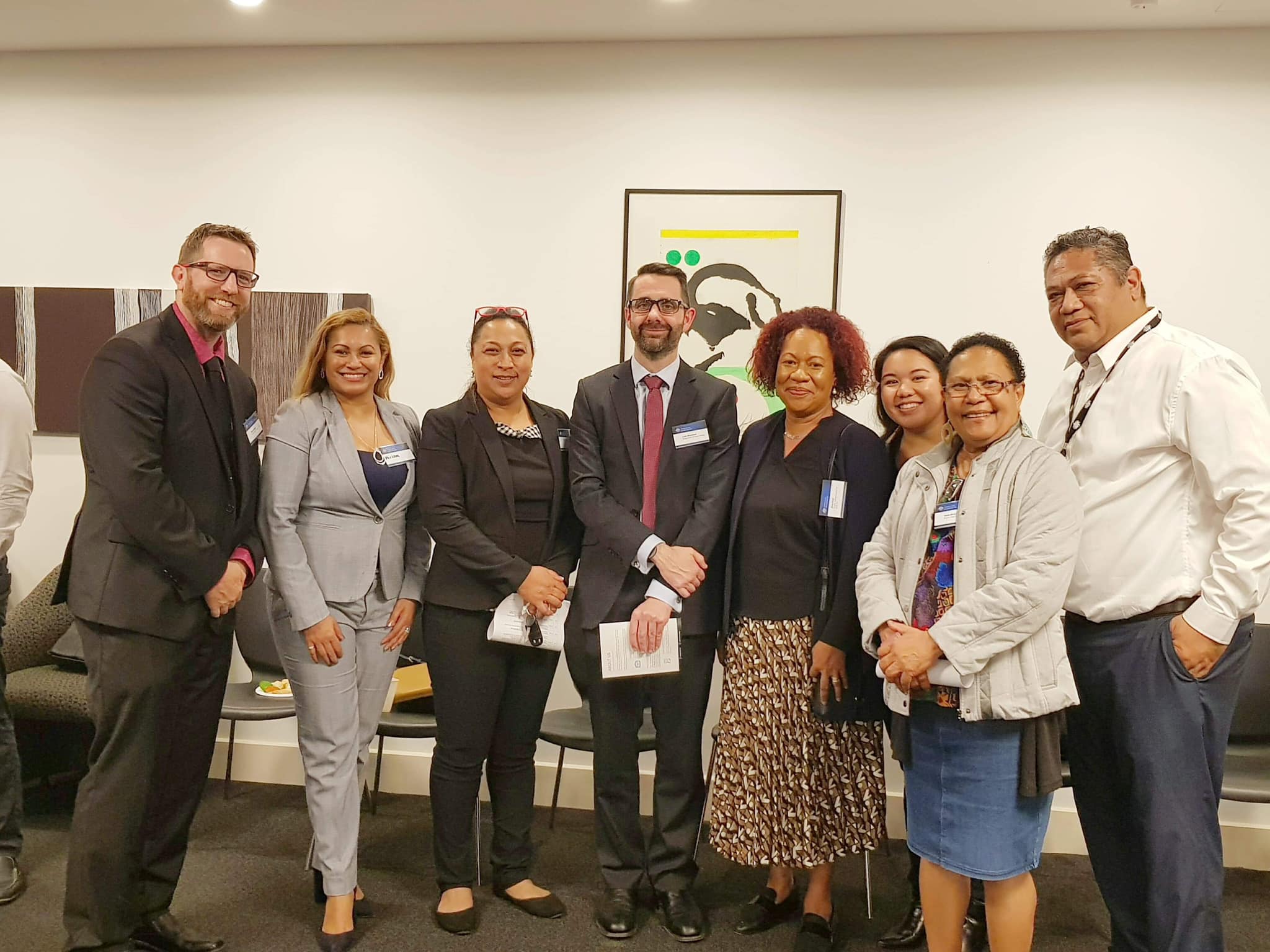
Community Leaders Forum
We were updated by Mr Luke Mansfield, First Assistant Secretary Refugee Citizenship & Multicultural Programs for Department of Home Affairs [4th from left in pic], and Mr Steve Biddle, Qld Regional Director of Home Affairs [1st from left], on the status of Australia’s refugee and humanitarian program.
We were informed that Australia will receive 18,750 refugees this year with the government focusing on regional settlement as opposed to urban establishment.
We also heard stories of success from former refugees, Mr Elijah Buol and Ms Leila Abukar, on how they are positively contributing to our community and being integrated successfully into society.
Mr Buol was awarded the Queensland Local Hero 2019 – Australian of the Year Awards and Ms Abukar is an active member of the Australian Multicultural Council.
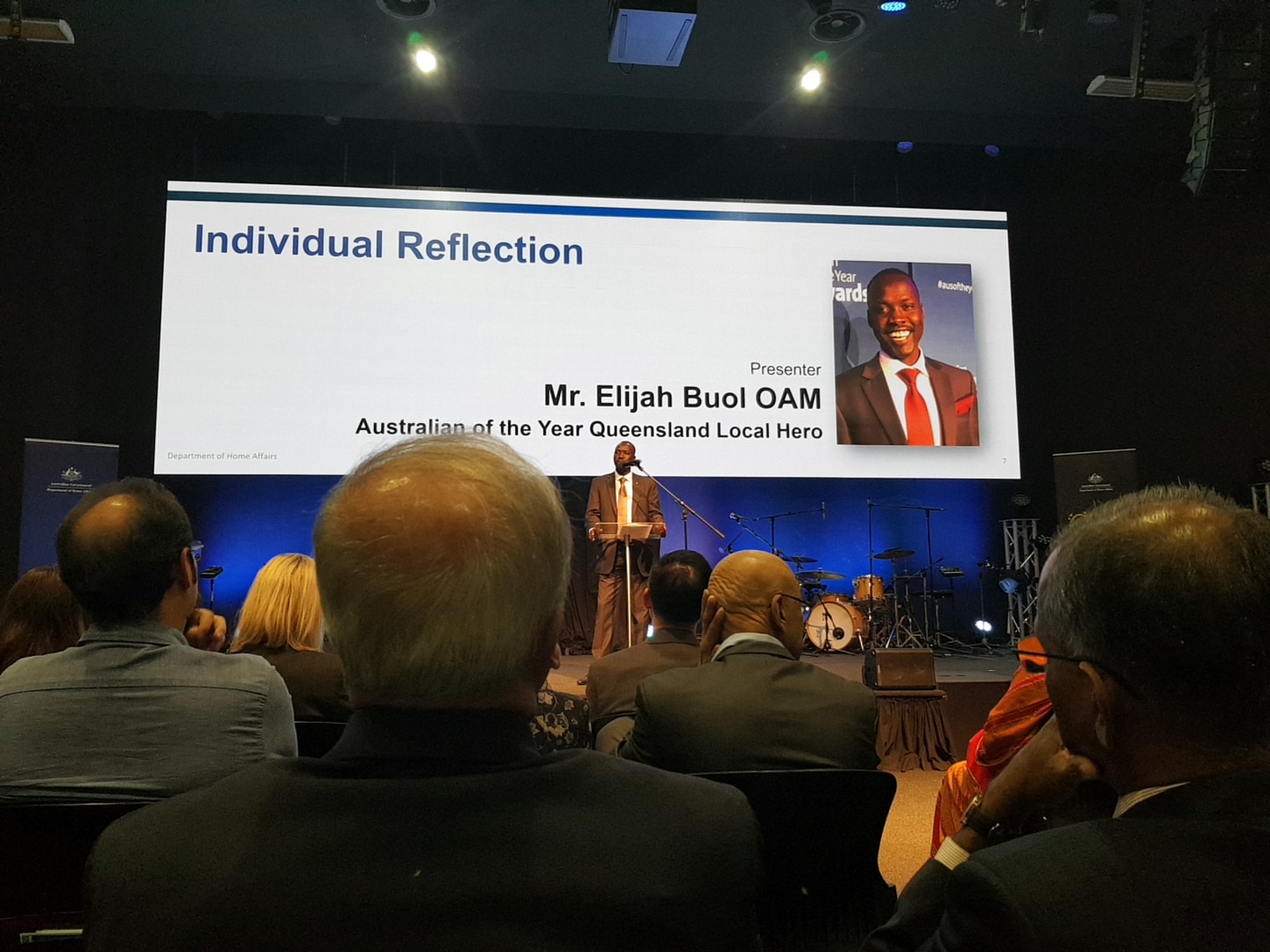 Elijah Buol
Elijah BuolNot all people fleeing their homes are deemed refugees, so here is a brief breakdown of five groups of people of concern:
- Refugees – people forced to flee their country due to conflict, war or persecution.
- Asylum Seekers – people outside their country of origin and receiving international protection, but awaiting the outcome of their claim to refugee status.
- Returned Refugees – those who are returned to their country of origin months, years or even decades after they left.
- Internally Displaced People – displaced to other areas within their own country.
- Stateless People – those that are denied a nationality and have difficulty accessing basic rights such as education, healthcare, employment and freedom of movement.
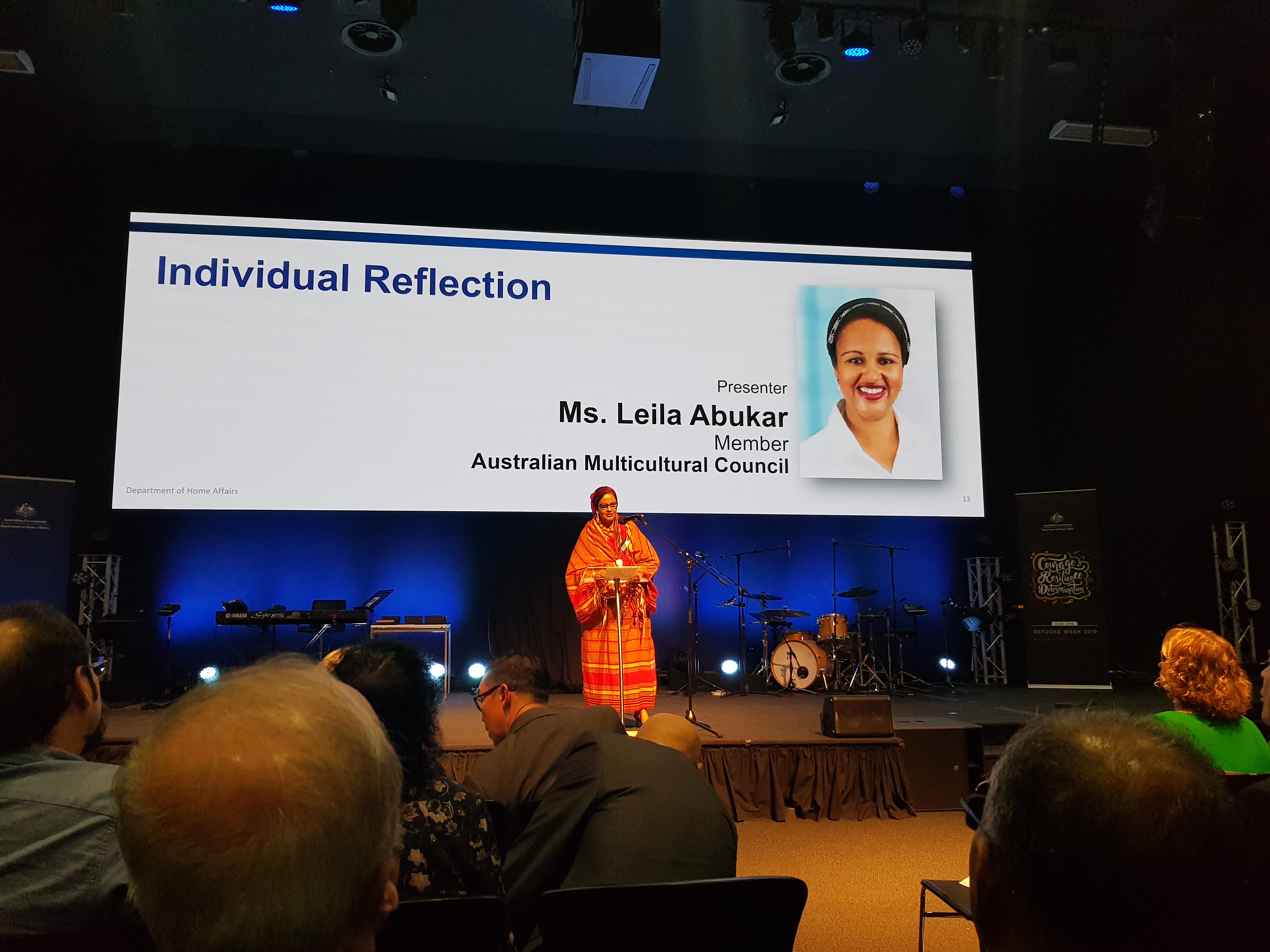
Leila Abukar
Source: United Nations Refugee Agency [UNHCR].
WHAT IS AUSTRALIA’S ATTITUDE TOWARDS THOSE WHO TRY TO SEEK REFUGE DOWNUNDER?
As a little girl growing up in Melbourne in the late 1980s, I often heard of the case about “boat people;” unfortunately in a negative light.
I remember with sadness seeing grafitti on walls stating, “Asians Out” or “Asian Invasion” as the Whitlam and Fraser governments of the ’70s opened its arms to welcome thousands of post-war refugee immigrants to major cities around the country.
Yet, I experienced many positives from settled refugee children whom I went to school with. These young friends from postwar-torn Vietnam and East Timor became hard-working citizens of their adopted nation.
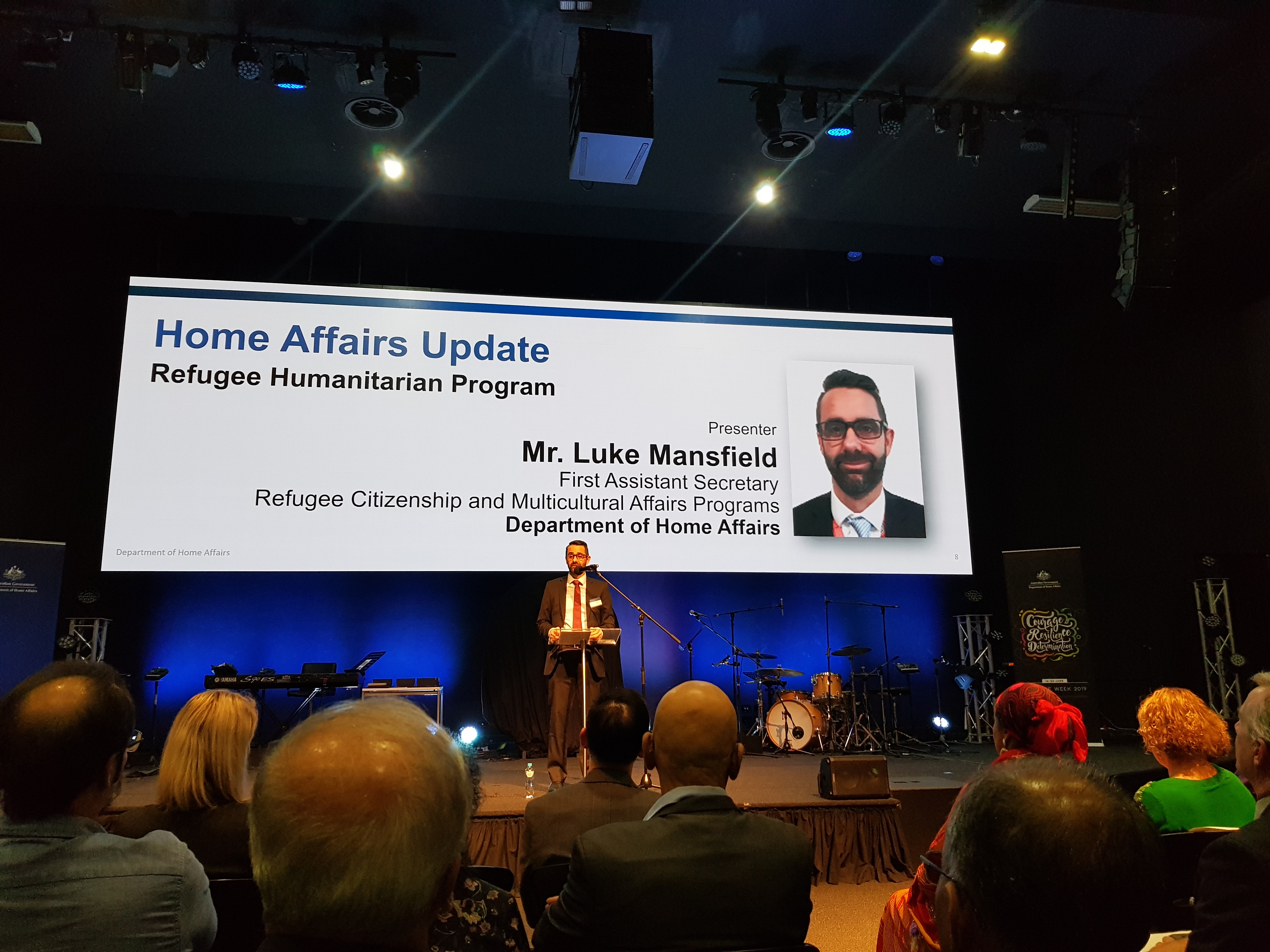
Luke Mansfield
Has the Australian attitude that I saw growing up in Melbourne in the 1980s changed over the past 2 decades?
According to a survey conducted by Ipsos Australia in June 2019:
- 63% of Australians believe in the fundamental right of refugees to seek refuge yet a total of 21% disagree with the statement;
- 40% agree that borders should be closed, which is up five points since 2017, while 44% disagree with that statement;
- 49% are doubtful and sceptical that refugees are genuine, up 2 points since 2017; and
- 42% agree that most refugees successfully integrate into their new society, which has fallen by 3 points since 2017, whilst 41% disagree that refugees will successfully integrate.
Source: Ipsos Australia
Ipsos Australia Director, David Elliott said: “The findings from this latest Ipsos global study show that while there is compassion for the plight of refugees across Australia, there is also a degree of scepticism about the number of bona fide refugees and their ability to integrate into society.”
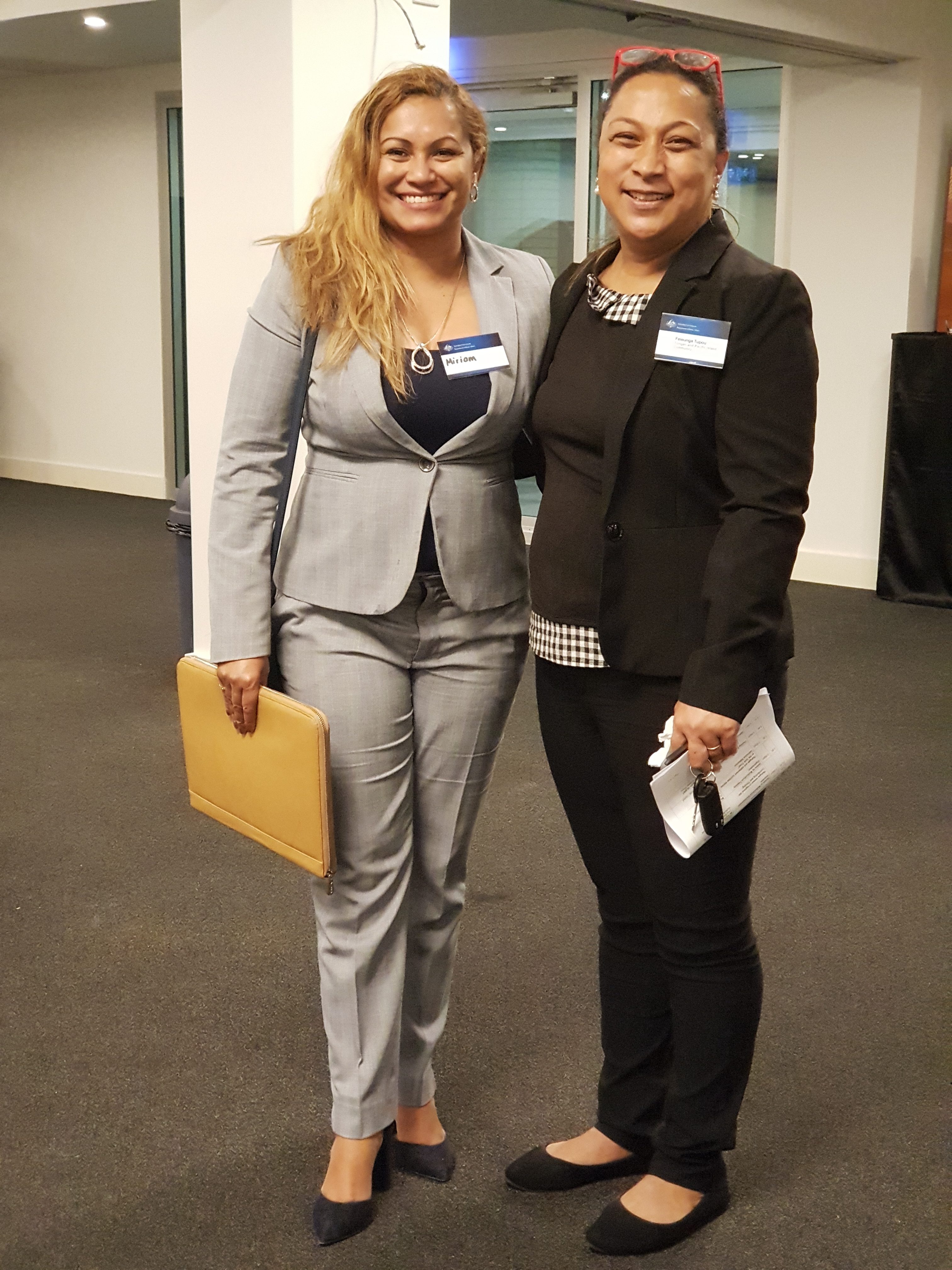
With fellow board member Unga Folau Tupou
In conclusion, I understand that we are all entitled to our own opinion towards the plight of displaced people worldwide.
However, I hope that compassion towards our displaced fellowmen will outweigh scepticism; when we put ourselves in their shoes and realise that people without a nation, let alone a place to call home, would be the most disstressed group of people on the Earth.
So on this World Refugee Day, let’s bring a fresh focus to the cause of Refugee Week by celebrating many who have successfully integrated themselves in our communities. Start a positive conversation in your workplace, school or community.

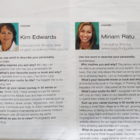
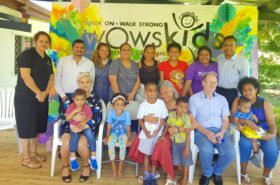
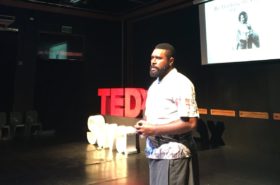

Austincer
Dropped in website’s rankings? Try our new Slow Link building Service.
We will run a slow & steady link building campaign for 7 days and send you a report with 140 live Social posts
More info and more variations in posts:
https://monkeydigital.co/product/daily-social-posting-service/
Thanks and regards
Mike
monkeydigital.co@gmail.com
Mcmichael
Wonderful blog!
Jimmi
Great info.